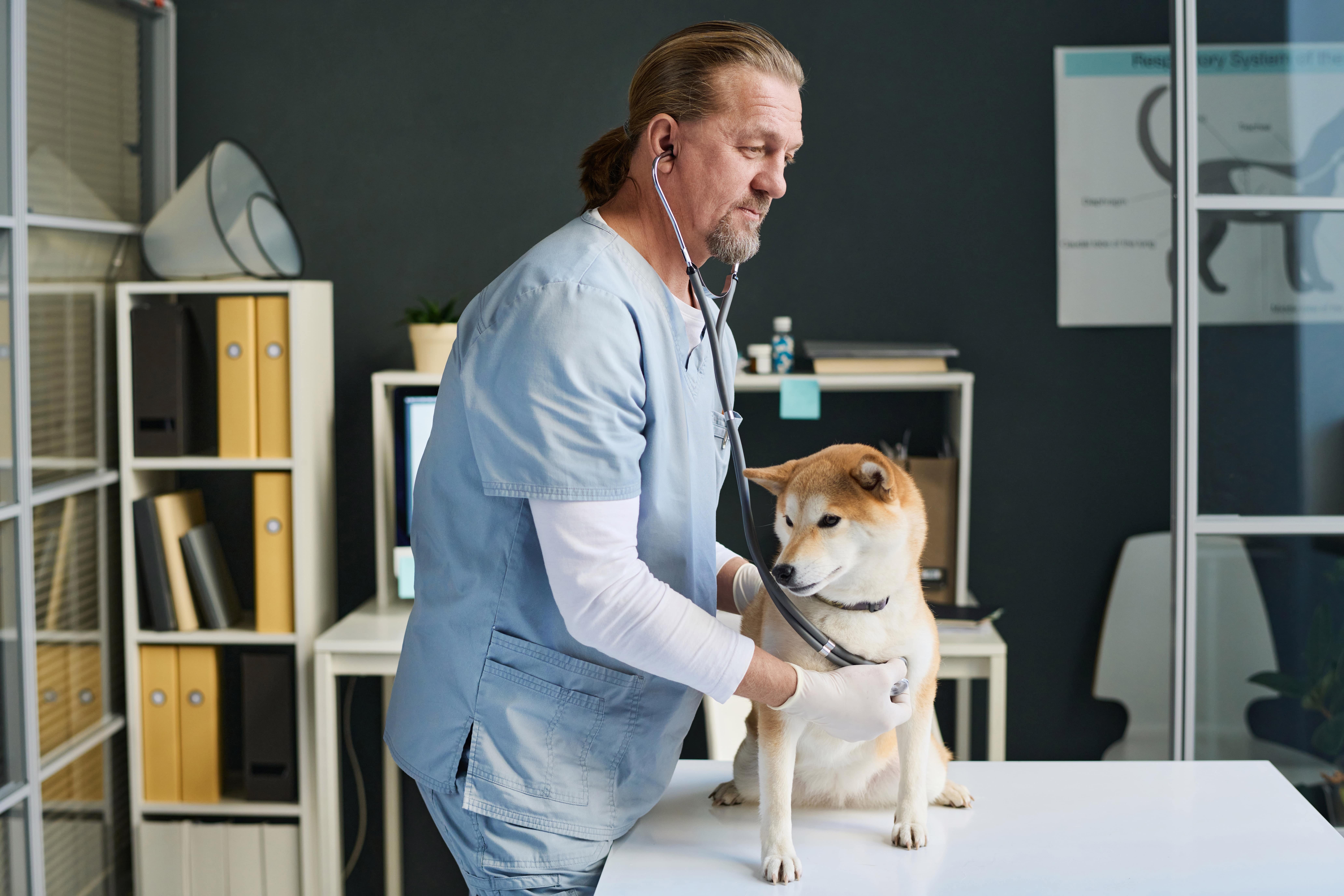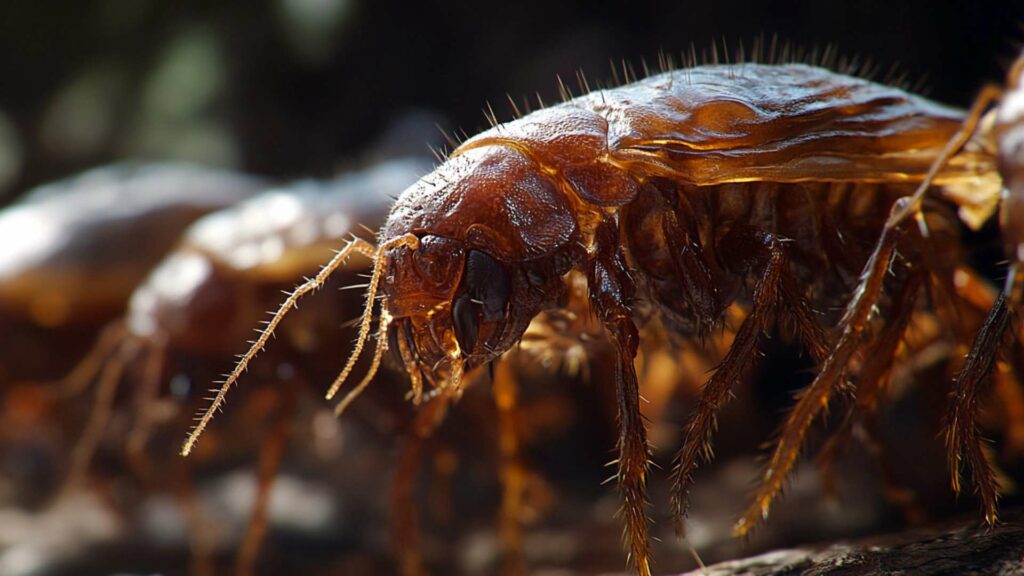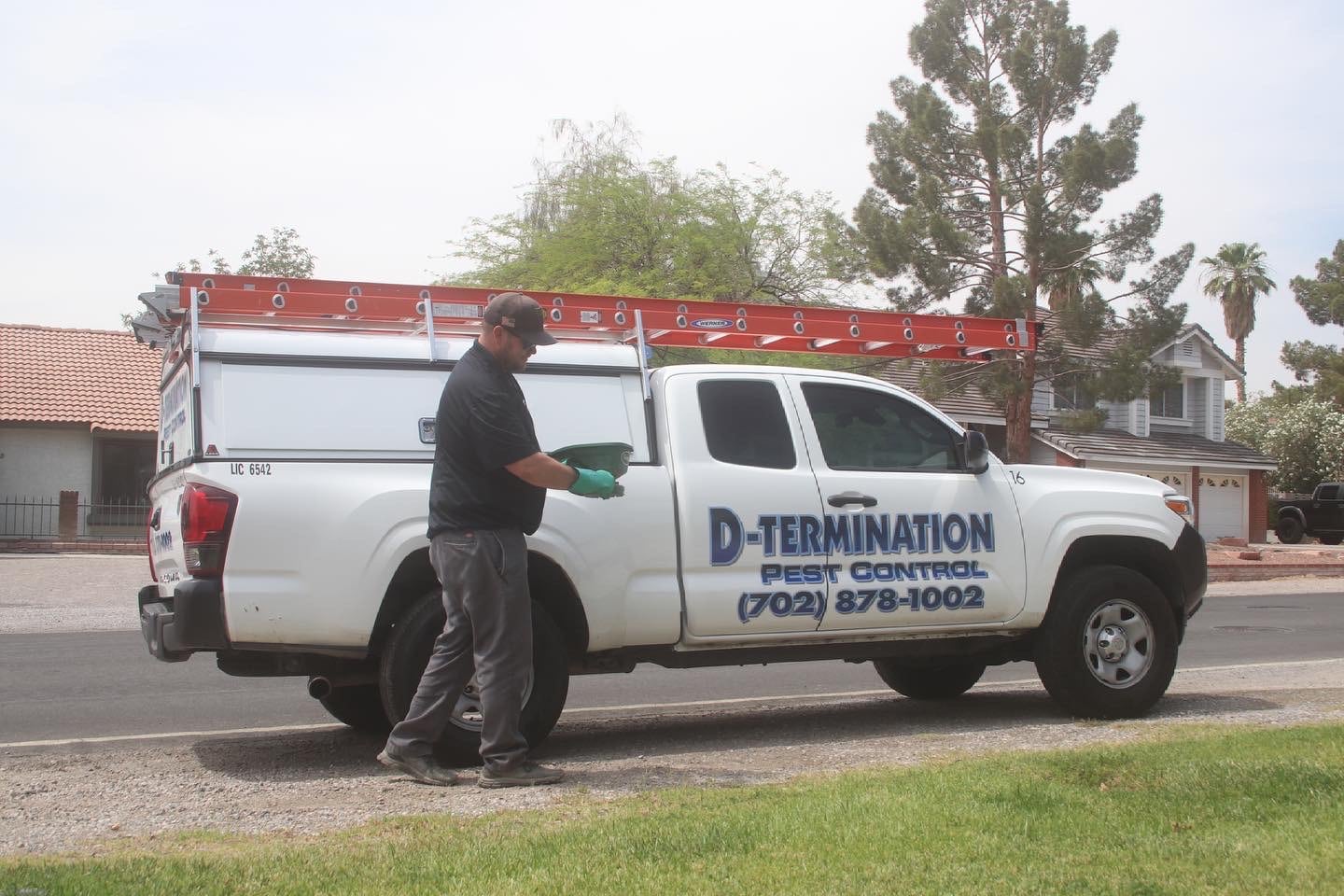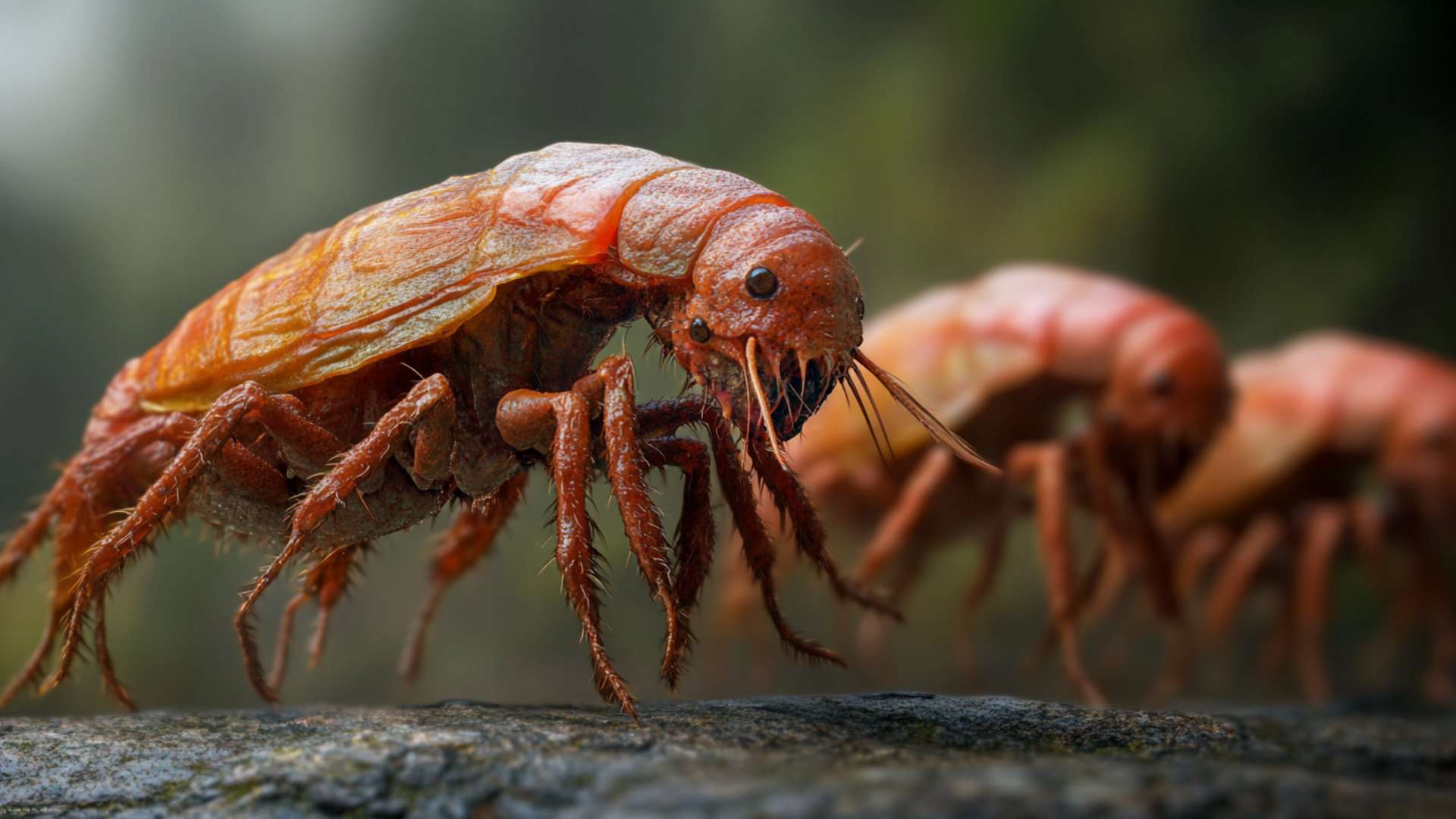Regular visits to the veterinarian are fundamental to maintaining your pet’s overall health and well-being. Just like humans, animals require proper care and attention.
Regular veterinary check-ups play a crucial role in preventing potential diseases, detecting any underlying health issues early on, and ensuring your beloved furry friend leads a happy and comfortable life. These routine visits allow veterinarians to thoroughly examine your pet, assess their vital signs, administer necessary vaccinations, and provide expert advice on various aspects of pet care.
One common concern that arises during these veterinary check-ups is flea prevention. Fleas are tiny parasitic insects that infest our pets and cause them considerable discomfort. These pesky creatures not only make our pets scratch excessively but can also lead to more serious diseases if left untreated.
Therefore, it becomes imperative for every pet owner to understand the significance of flea prevention as part of their pet’s overall well-being. In this article, we will delve into the subject matter of regular veterinary check-ups specifically pertaining to flea prevention.
We will explore how veterinarians play a vital role in identifying signs of flea infestation, providing safe and effective treatments, educating owners on preventive measures, and monitoring the progress in eliminating fleas from your furry companion’s life.
Understanding Fleas and Their Impact

Fleas, those pesky little insects that wreak havoc on our beloved pets, are tiny parasites that survive by feeding on the blood of their host animals. They have a fascinating life cycle that consists of four stages: egg, larva, pupa, and adult. Flea eggs are laid on the host animal but tend to fall off onto the surrounding environment such as carpets, bedding, or furniture.
These eggs hatch into larvae which feed on organic debris found in their surroundings. After going through several molts as larvae, they form cocoons and enter the pupal stage where they undergo metamorphosis to become adult fleas.
Potential Risks and Consequences of Flea Infestations on Pets
Flea infestations can have a significant impact on our furry companions. The most obvious consequence of flea dirt is the constant irritation caused by flea bites.
Pets suffering from flea infestations may exhibit signs such as excessive scratching or biting at their skin. This persistent itching can lead to skin inflammation and secondary infections if left untreated.
Additionally, some pets may develop flea allergies which intensify the discomfort even further. But it’s not just about irritating flea bites on their skin; fleas also transmit diseases that pose serious risks to our pets’ health.
For instance, fleas can transmit tapeworms when ingested during grooming or licking themselves after a flea bites their skin. Moreover, fleas carry bacteria like Bartonella henselae which causes cat scratch disease in humans.
It’s crucial to understand that even if you don’t spot adult fleas directly on your pet’s comb or fur, you should still be alert to signs of flea infestation such as “flea dirt” or tiny grains of sand-like particles found in their coat. This “flea dirt” is actually adult flea feces, consisting of digested blood from the host animal.
If you notice your pet constantly scratching or displaying any signs of fleas, it’s time to take action and consult a veterinarian. By now, it should be clear why regular veterinary check-ups for flea prevention are so vital.
These check-ups help identify and eliminate fleas at an early stage before they can cause severe diseases or further discomfort to our beloved pets. Now let’s delve into the specifics of how veterinarians play a crucial role in battling these nuisances and keeping our pets safe.
The Importance of Regular Veterinary Check-ups for Flea Prevention

When it comes to protecting our beloved furry friends from the most common external parasite, fleas, veterinarians play a crucial role. These healthcare professionals have extensive knowledge and experience in detecting and preventing flea infestations. During regular check-ups, vets assess the overall health of your cat or dog, including checking for signs of fleas.
They examine your pet’s fur meticulously, using fine-toothed flea combs to comb through every inch for any trace of these pesky parasites. Veterinarians are trained to spot even the tiniest flea or flea bite, ensuring early intervention before a minor issue escalates into a full-blown infestation.
Regular veterinary check-ups are crucial because they allow early detection and treatment of fleas on your cat or dog. By scheduling routine appointments with your veterinarian, you increase the likelihood of identifying a potential flea problem before it becomes unmanageable. Remember that fleas are experts at hiding in your pet’s fur and evading detection until their population grows significantly.
However, during check-ups, veterinarians know precisely where to look for these sneaky critters—underneath your pet’s fur and near warm areas of dry skin, like their neck or groin. With their trained eyes and expertise in handling pets during examinations, veterinarians can detect even the slightest sign of fleas.
One vital aspect of regular veterinary check-ups is the comprehensive physical examination performed by professionals. During these examinations, veterinarians thoroughly assess skin test your cat or dog’s skin condition as part of their effort to eliminate fleas. They look for flea bites, redness, inflammation, or any signs of discomfort caused by flea infestations.
Since pets cannot vocalize their concerns, veterinarians rely on their expertise and keen observation skills to identify these physical manifestations of flea-related issues. Moreover, a thorough examination allows vets to detect other potential health problems that may be linked to or worsened by fleas.
Emphasizing the Benefits of Routine Blood Tests to Identify Underlying Issues
Routine blood tests are another valuable tool in the veterinarian’s arsenal when it comes to flea prevention and overall pet health. These tests can assess your dog or cat, or their blood for any signs of infection or disease caused by external parasites like fleas. Blood tests help veterinarians identify specific indicators such as elevated white blood cell count, anemia, or the presence of infectious agents carried by fleas.
By detecting these underlying issues early on through routine blood tests during check-ups, veterinarians can initiate appropriate treatment plans promptly and prevent potential complications that may arise from a prolonged infection. Regular veterinary check-ups play a significant role in preventing flea infestations and ensuring the well-being of our furry companions.
By highlighting the veterinarian’s role in identifying and preventing fleas, explaining how check-ups enable early detection and prompt treatment through thorough examinations using fine-toothed combs, and discussing the benefits of routine blood tests to identify underlying issues, we can comprehend why these visits are crucial for effective flea prevention strategies and overall pet health maintenance. So let us not take these check-ups lightly; they are key in keeping our beloved pets happy, healthy, and free from those pesky little critters!
Tailored Flea Prevention Plans by Veterinarians
When it comes to flea prevention, veterinarians play a crucial role in tailoring flea bite plans specifically for your beloved pets. They take into account various factors such as your pet’s age, overall health, lifestyle, and any pre-existing conditions.
This personalized approach ensures that the pet for fleas prevention plan is effective and suitable for your furry friend’s unique needs. By customizing the plan, veterinarians can provide targeted solutions to combat those pesky fleas.
Veterinarians have an array of preventive measures at their disposal to combat flea infestations. These measures can include topical treatments, oral medications, or a combination of both.
Topical liquids are commonly used and are applied directly onto your pet’s skin, typically between the shoulder blades or at the base of the neck. Oral medications are also available in different forms such as tablets or chews that are easy to administer to your pet.
While having a tailored flea prevention plan is essential, it is equally important to follow through with consistent application or administration as advised by your veterinarian. Skipping doses or irregularly applying preventive treatments can jeopardize their effectiveness and leave your pet vulnerable to flea infestations. Consistency is key when it comes to keeping those fleas at bay and protecting your furry companion from potential health issues caused by these common external parasites.
Education on Flea Prevention for Pet Owners
When it comes to flea prevention, veterinarians play a crucial role in educating pet owners on effective strategies. During regular check-ups, these knowledgeable professionals take the time to discuss the significance of staying proactive in preventing flea infestations.
They emphasize that early intervention is key to avoiding severe diseases and discomfort caused by these pesky parasites. By explaining that fleas are one of the most common external parasites that can make your pet miserable, veterinarians drive home the importance of regular check-ups as a preventive measure.
Grooming Techniques: A Defense Against Fleas
One essential aspect of flea prevention that veterinarians educate pet owners about is proper grooming techniques. Grooming not only helps your furry friend look their best but also aids in reducing flea populations. Veterinarians recommend regular brushing to remove any adult fleas or tiny grains of sand-like flea feces from your pet’s fur.
This way, you can spot signs of fleas early on and take appropriate action to eliminate them before they become a full-blown infestation. Additionally, keeping your pet’s fur clean and well-maintained discourages fleas from taking up residence on their skin.
Environmental Control: Minimizing Re-infestation Risks
In addition to grooming practices, veterinarians stress the significance of environmental control in minimizing re-infestation risks. These experts educate pet owners about various measures they can take to create an inhospitable environment for fleas. Vacuuming regularly and washing bedding at high temperatures helps eliminate flea eggs and larvae from carpets and fabrics.
Furthermore, using veterinary-approved household sprays or foggers can target areas where adult fleas may be hiding, effectively breaking their life cycle. By imparting knowledge about proper grooming techniques and environmental control, veterinarians empower pet owners to actively participate in flea prevention.
These practices, combined with regular veterinary check-ups, significantly decrease the chances of flea infestations and make your pet’s life happier and healthier. Remember, staying informed and taking preventive measures can save your beloved four-legged friend from the misery that fleas can cause.
The Role of Regular Check-ups in Monitoring Flea Control Efforts
Regular veterinary check-ups play a crucial role in monitoring the check for flea allergies and the effectiveness of preventive measures taken against fleas. These visits provide an opportunity for veterinarians to assess the current status of flea prevention methods and make necessary adjustments based on the individual pet’s needs. During these check-ups, veterinarians examine pets thoroughly, keeping an eye out for any signs of flea infestation.
They inspect the pet’s coat, using a fine-tooth flea comb to check for flea bites or any tiny grains of sand-like particles that indicate flea presence. These meticulous examinations help detect early signs of fleas that might have gone unnoticed by pet owners or may not be visible to the naked eye.
Based on the monitoring results obtained during regular check-ups, veterinarians can provide additional recommendations specific to your pet’s situation. If your cat has fleas or there are signs of fleas or if preventive measures haven’t been effective enough, your veterinarian may suggest alternative or more stringent treatments for better control. Different pets may respond differently to various flea prevention methods due to factors such as age, health condition, and lifestyle.
Hence, veterinarians can tailor their recommendations according to your pet’s unique needs. They might advise fine-toothed flea combing your pet thoroughly with a fine-tooth flea comb regularly or using safe and effective treatments such as topical solutions or oral medications that target fleas at different life stages.
Monitoring efforts through regular veterinary visits not only ensures peace of mind but also helps prevent more severe diseases associated with flea infestations. Beyond just being external parasites that cause discomfort through itchy flea bites on their skin, fleas can transmit diseases like Bartonellosis and tapeworm infections to pets when ingested during grooming.
Regular check-ups enable veterinarians to check for flea allergies as well, as some pets may develop hypersensitivity to flea saliva, resulting in intense itching and skin inflammation. By staying vigilant and taking proactive steps based on monitoring results, pet owners can protect their pets from the risks of fleas and maintain their overall health and well-being.
The Link Between Flea Prevention and Overall Pet Health

Fleas, those tiny external parasites that thrive on your furry companions, may seem like just an annoyance. However, the impact of fleas but my pet extends far beyond mere itchiness. Effective flea prevention plays a crucial role in maintaining your pet’s overall health and well-being.
When left unchecked, fleas can cause a range of problems for your beloved animals. One significant aspect of flea allergies to consider is the discomfort caused by flea bites.
These blood-sucking pests not only cause intense itching but can also lead to allergic reactions in some pets. The constant scratching and biting can result in skin irritation, open sores, and secondary infections.
By implementing proper flea prevention measures, you not only relieve your pet of these pesky insects but also prevent potential complications. Furthermore, fleas are carriers of various diseases that can affect the host animal’s health significantly.
Flea saliva contains substances that are known allergens to many cats and dogs. This can trigger severe allergic reactions in sensitive individuals, leading to dermatitis or even more severe diseases if left untreated.
Conclusion
Taking proactive measures for flea prevention through regular veterinary check-ups is an essential aspect of responsible pet ownership. By prioritizing these check-ups and following your veterinarian’s advice on preventative methods such as topical liquids or oral medications, you ensure the overall well-being of your furry friend. Remember that even if there are no visible signs of fleas on your pet or in their environment, it doesn’t necessarily mean they are flea-free.
Fleas are experts at hiding and reproducing rapidly; therefore, regular veterinary visits play a vital role in early detection and treatment before infestations become unmanageable. So let us commit ourselves to the importance of regular veterinary check-ups for flea prevention.
By doing so, we can keep our pets happy, healthy, and free from those tiny grains of sand that can make them miserable. Your pet’s well-being is in your hands, and with proper flea prevention measures in place, you can ensure they live a life free from the nuisances and potential health risks that fleas bring.
Get rid of fleas with D-Termination: Las Vegas’ top pest control service!

If you’re grappling with flea issues on your Las Vegas property, turn to D-Termination for assistance. Our expert team excels in eliminating flea infestations and restoring comfort and peace to your space. Say farewell to fleas—opt for D-Termination for effective pest control today!
Contact us at 702-919-6310 or visit dtermination.com to schedule your flea control service and reclaim your space from these bothersome pests.
Frequently Asked Questions:
Regular vet check-ups are important to monitor your pet’s health, catch potential issues early, and ensure preventive care.
Consistent veterinary care is essential for maintaining your pet’s overall health, preventing diseases, and addressing any emerging concerns promptly.
Yes, cats benefit from regular vet visits to monitor their health, administer vaccinations, and address any health issues.
Yes, dogs should have an annual check-up to assess their health, receive vaccinations, and address any health concerns or changes.








